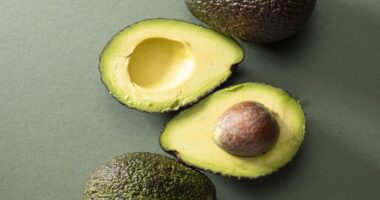We are huge coffee lovers in the UK, consuming around almost 100 million cups of the stuff a day.
Luckily the hot drink is not only tasty but thought to have a number of health benefits when consumed in moderation.
Various studies have linked coffee consumption to reduced risk for heart disease, diabetes and Parkinson’s among other conditions, for example.
However, an expert has warned against a common habit many coffee drinkers have as it may minimise some of the health benefits.
Speaking on social media platform TikTok, neuroscientist Robert Love advised: “Never add dairy to your coffee.”
He explained: “If you want the maximum benefit from coffee, you never want to add dairy to your coffee.
“So dairy – milk, cream – tastes great in coffee, I totally get it. And by adding that dairy, you are greatly reducing the benefits of coffee.
“For example, coffee is the most prominent source of polyphenols in the American diet.”
Coffee is actually one of the most polyphenol-rich beverages consumed worldwide, containing 214 mg of total polyphenols per 100 ml.
Polyphenols are thought to offer protection against development of certain cancers, cardiovascular diseases, diabetes, and neurodegenerative diseases.
“So the dark colour in coffee is really beneficial for our gut bacteria and our brain,” Robert continued.
“It has antioxidant properties. Really, really beneficial.
“And when you add dairy to your coffee, proteins and dairy bind to the polyphenols in coffee and reduce absorption.
“So when you add dairy, whether it’s regular cow milk or cream, to your coffee, this will bind the polyphenols and reduce your body’s ability to absorb those healthy polyphenols and get benefit out of it.
“It’s even true with blueberries. So do not drink cow’s milk with blueberries, because the proteins in cow’s milk will actually bind the polyphenols in blueberries.”
His advice was backed by a scientific review, published in The Journal of AOAC International in 2019, which looked at the effects of combining milk with a range of foods containing polyphenols, including coffee.
They saw that polyphenols easily react with components in other foods they are combined with which in turn affects their nutritional properties.
The review concluded that adding milk reduces the antioxidant properties of coffee polyphenols therefore “dramatically decreasing or impairing the health-beneficial properties of such beverages”.
Robert recommended milk alternatives to use in coffee. “So here’s what to do,” he said.
“Here’s what you can add. You can add non dairy milk like cashew milk or coconut milk. I recommend that over almond milk. Almond milk uses way too much water.
“You can also use MCT oil. That is my favourite. That stands for medium chain triglyceride oil. It’s like coconut oil on steroids. It’s terrific for your brain.
“You get that in a liquid or powder, blend that up. It’s absolutely terrific. Then sweeten it with a little stevia or monk fruit sugar.
“That way you’re not adding that harmful refined sugar to your coffee. And so you get it sweet and creamy with those things and still get the full benefits of coffee.”
However, a separate study published in the Journal of Agricultural and Food Chemistry in 2023, found that the way in which polyphenols found in coffee bind with an amino acid found in milk, can also have beneficial antioxidant and anti-inflammatory effects.










